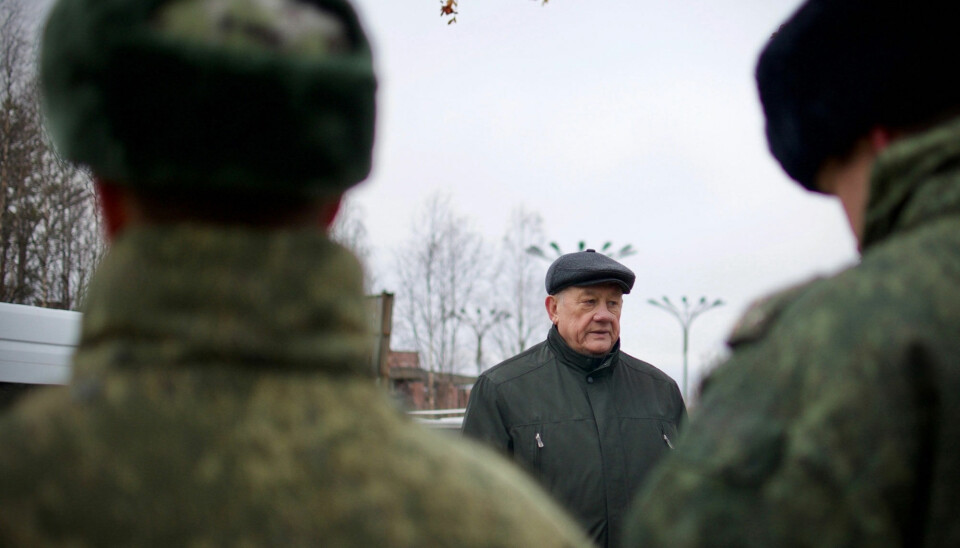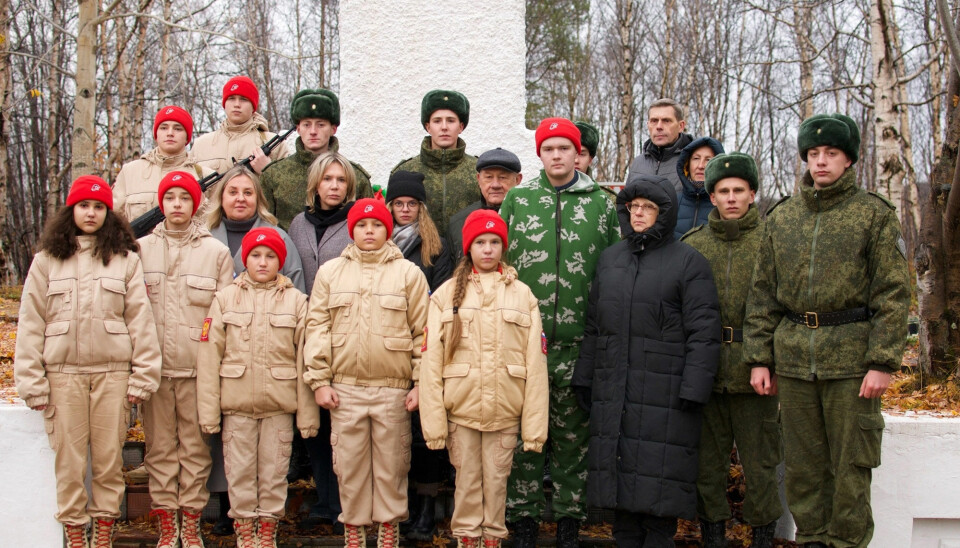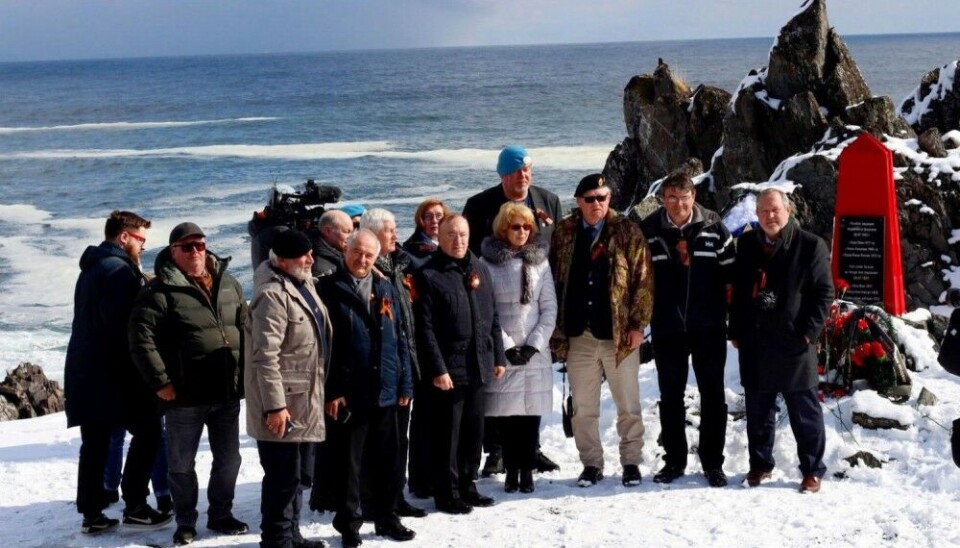
Chief FSB veteran Gennady Gurylev is back on the border to Norway
The retired major general and former head of the security service in Murmansk played a key role in an influence operation against Norway. During his visit to the border area, he praised Russian troops that “fight for freedom.”
“We have come here today to lay down flowers at the Akhmalakhti memorial where Soviet soldiers that were killed in Northern Norway during the Great Patriotic War are buried,” Gennady Gurylev said during his visit to the war monument located in Pechenga, only few kilometers from the Nordic country.
Gurylev was accompanied by Lyubov Cherepanova, the member of the Murmansk regional parliament. In the group was also Natalia Spirina, the widow of the deputy commander of the 200th Motorized Rifle Brigade that was killed in Ukraine in July 2022.
Andrei Spirin was part of the Russian forces that on the 24th of February 2022 attacked the neighboring country. He was killed outside Kharkiv and was later post-mortem awarded the Hero of Russia medal.

Gennady Gurylev in an address compared the Soviet soldiers that fought in the area during the 2WW with the Russian warriors that today fight in Ukraine.
“We absolutely have to commemorate the bravery of our Soviet soldiers during the Great Patriotic War, and of the Russian soldiers that take part in the Special Military Operation,” he said, according to a social media post from the local government.
“They have the same nature - their bravery is for the freedom of our country, for the protection of the lives of our people, the soldiers and officers do not spare their own lives for this purpose,” he added and exclaimed that “victory will be our!”
Across Russia, commemorative events for fallen soldiers in the Second World War increasingly coincide with rallies and meetings in support of today’s war of aggression in Ukraine. The same is the case in the Pechenga area.
The Akhmalakhti memorial is located in a region that belonged to Finland before the 2WW. In late October 1944, Soviet troops counter-attacked the German Nazi forces that for more than three years had tried to capture Murmansk. The Germans were pushed out of Soviet territory, across the Finnish lands of Petsamo and more than 100 km into the Norwegian East Finnmark region.
While the Soviet troops pulled out of Kirkenes and eastern Finnmark after almost a year, they never abandoned Petsamo. The Finnish region was ultimately ceded by Finland to the USSR and subsequently renamed "Pechenga."
Gennady Gurylev is a former regional leader of the FSB in Murmansk. In 2007, he founded Shchit (Shield), a FSB veterans organization in the far northern Russian region.
Gurylev actively took part in an influence operation aimed against Northern Norway, and especially the East Finnmark region. For several years, he and his organisation cooperated with agents from the Russian Geographical Society and others in a plot aimed at influencing regional politicians and public opinion in the neighbouring country.

Their approach was war history and the partisans that operated in the area. The narrative was a ‘common history’ and ‘common fight against Fascism’ between northern Norway and Russia.
Gurylev and his colleagues actively participated in the planning and organization of so-called “memory marches” that have included joint visits to war memorial sites on both Russian and Norwegian sides of the border.
According to Professor Kari Aga Myklebost from UiT The Arctic University of Norway, the trips served as cover to build networks and propagate Russian foreign policy narratives in the Norwegian borderland, including towns like Kirkenes and Vardø.
In a research project titled Memory Politics of the North, the professor has has published articles that document and identify the Russian actors and the way they aimed at nurturing relations with politicians and local historians in Eastern Finnmark.














